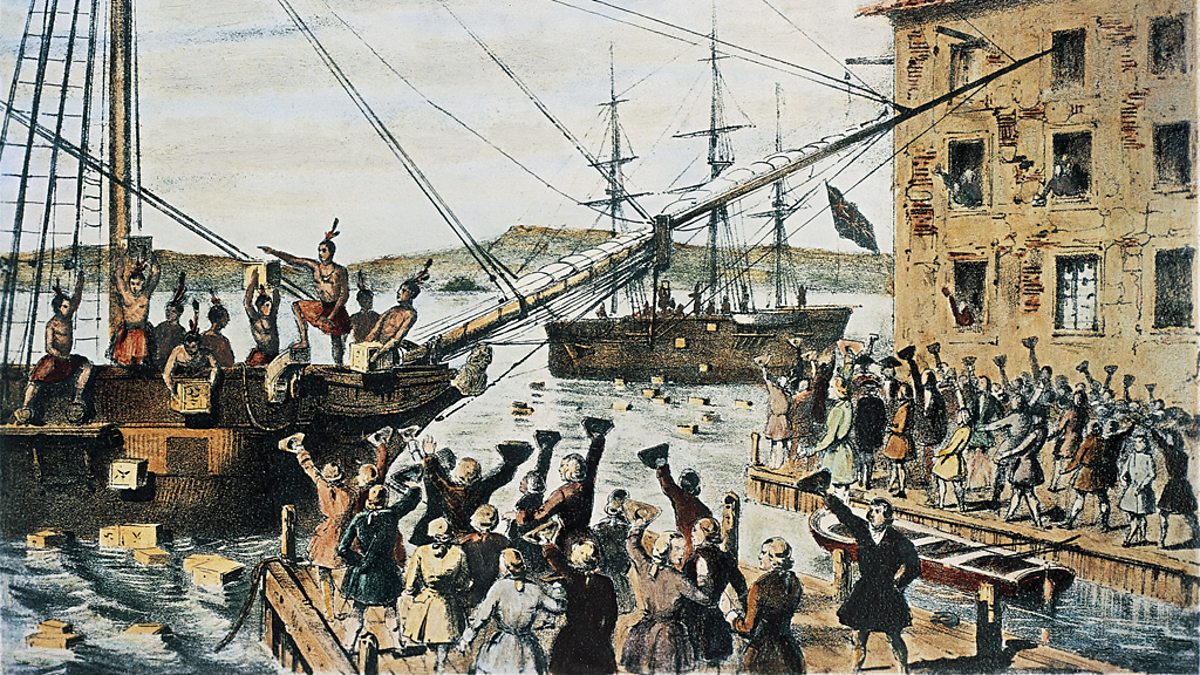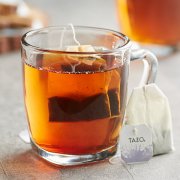The Origin and Development of English Black Tea drinking the Historical Story of English Black Tea caused by the War caused by Tea
The British fell in love with tea in the 17th century, when the British were introduced into England from China. At first, tea was just an upper-class thing, because it was expensive and not easy to buy. But by the 18th century, people from all walks of life in England were drinking tea, and drinking a lot. Of course, they have to import all the tea from China, as well as many other goods, such as silk, porcelain and so on. The Chinese monopolize these goods and charge corresponding fees. Soon after, Britain was in serious financial trouble, and their love of tea was an important factor. Do you want to do something? If China monopolizes these goods and can charge the prices they want, how can Britain generate more income? They turned their attention to the American colonies, believing that the protection they provided in the past, including the price paid by Britain to defend the colonies during the French and Indian wars, won them the right to tax the colonies and generated income for Britain. It began with the Stamp Duty Act of 1765 (Stamp Act) and applies to any paper object that people use, from newspapers to legal documents to playing cards. After the Stamp Duty Act, the Townshend Act of 1767 included the necessities of daily life, including tea. Tensions between colonists and British soldiers escalated until it led to the Boston Massacre in 1770, when British soldiers killed five colonists. Things will only get worse. In the end, the Tea Act abolished most taxes except tea in Britain. The colonists also liked tea and imported 1.2 million pounds of tea a year. In protest, the colonists boycotted tea imported by the British East India Company and began to smuggle Dutch tea, which had a serious impact on the profits of the East India Company. It can be said that in order to bring the colonies back to Britain, the British Parliament passed the Tea Act (Tea Act) in 1773, allowing the East India Company (East India Company) to sell tea to the colonies duty-free and at a lower price than other tea companies. However, once tea arrives in the United States, it will still be taxed. This was not recognized by the colonists, who, under the leadership of the famous tea smugglers John Hancock and Samuel Adams, continued to smuggle tea instead of buying it from Britain and paying taxes. Smuggled tea is actually more expensive, but it doesn't matter. Sometimes you just have to stand up for what you believe in! During the period when Britain began to levy taxes on the colonies, a group of colonial revolutionaries known as "sons of freedom" had been trying to promote the concept of "no taxes without representation" and made Britain give up colonial taxes. On December 16, 1773, thousands of colonists gathered at Griffin Wharf in Boston, where three East India Company ships loaded with tea were moored. At the same time, a large number of colonists held a meeting and voted to refuse to pay taxes on tea. They also voted not to allow tea to be unloaded, stored, sold or used. That night, the colonists (considered by many to be "sons of freedom") returned to the ship disguised as Indian clothes, boarded the ship, and the rest became history. Nearly 350 cases of tea were thrown into the water, about 45 tons. In today's dollars, this is about $1 million worth of tea. They were some very angry colonists. In addition, we don't even want to think of 45 tons of hot cinnamon spices floating in Massachusetts Bay! (as Thomas Jefferson said in hamilton's first Cabinet dispute (Cabinet Battle # 1): "look, when Britain levies our tea, we become lively. Imagine what would happen if you wanted to tax our whisky.

Tea and War, of course, the next situation is not good. The British Parliament passed a mandatory bill, also known as the intolerable bill, which closed the port of Boston until the payment of tea, and attempted to further hinder and regulate the freedom and independence of the colony. The Boston tea-pouring event on December 16, 1773 did stimulate other tea-pouring events, but in the end, the momentum generated by the Boston tea-pouring incident and the subsequent injunction led to a full-scale colonial uprising. In 1774, the first Continental Congress was established and a declaration seeking independence from British rule was drafted. Britain refused and began the eight-year War of Independence in 1775. As all of us in the United States know, the colonists won and won their independence. We know this because we don't speak with a British accent. At the same time, Britain's financial crisis is far from over because of the extra costs of the war with the colonies.
Important Notice :
前街咖啡 FrontStreet Coffee has moved to new addredd:
FrontStreet Coffee Address: 315,Donghua East Road,GuangZhou
Tel:020 38364473
- Prev

How to drink Golden Monkey Black Tea the difference between Golden Monkey Jasmine Dragon Ball Dahongpao in Fujian famous Tea list
China, the hometown of tea, is the largest tea grower in the world, producing about 2 million tons of tea every year. Therefore, it is not surprising that China also has the largest number of tea-growing lands in the world, and it is not surprising that many provinces have tea gardens. These gardens are usually found in small plots of land on high mountains, along the mountains.
- Next

Are all the top ten top teas made from one kind of tea tree? is black tea made from green tea?
Want to know more about how to use loose tea to make tea? You've come to the right place. We have created this convenient guide to help beginners learn the basics of tea and how to make tea. In this tutorial, you will learn everything from different types of tea to the origin of tea, and find out how to brew it each time.
Related
- Unexpected! Ruixing Telunsu lattes use a smoothie machine to foam milk?!
- % Arabia's first store in Henan opens into the village?! Netizen: Thought it was P's
- Does an authentic standard mocha coffee recipe use chocolate sauce or powder? Mocha Latte/Dirty Coffee/Salty Mocha Coffee Recipe Share!
- What is the difference between Vietnam egg coffee and Norway egg coffee? Hand-brewed single product coffee filter paper filter cloth filter flat solution!
- What is the difference between sun-cured and honey-treated coffee? What are the differences in the flavor characteristics of sun-honey coffee?
- How to make Italian latte! How much milk does a standard latte use/what should the ratio of coffee to milk be?
- How to make butter American/butter latte/butter Dirty coffee? Is hand-brewed coffee good with butter?
- Is Dirty the cold version of Australian White? What is the difference between dirty coffee/decent coffee and Australian white espresso?
- Relationship between brewing time and coffee extraction parameters How to make the brewing time fall to 2 minutes?
- Got entangled?! Lucky opens a new store, Mixue Ice City, and pursues it as a neighbor!

